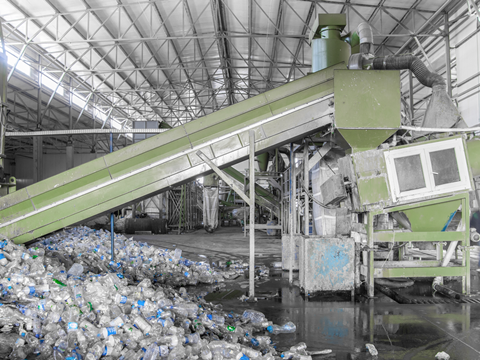
Seven Fraunhofer Institutes are pooling their expertise in the lighthouse project "Waste4Future", which aims to increase energy and resource efficiency in the use of plastics and thus pave the way for a chemical industry that requires fewer fossil raw materials and produces fewer emissions.
A key part of the project will be to create new opportunities for recycling plastics in order to make the carbon they contain available as a "green" resource for the chemical industry.
"We are paving the way for a carbon circular economy in which valuable new base molecules are obtained from plastic waste and emissions are largely avoided: Today's waste becomes tomorrow's resource," says Dr.Ing. Sylvia Schattauer, deputy director of the Fraunhofer Institute for Microstructure of Materials and Systems IMWS, which is heading the project.
"With the know-how of the participating institutes, we want to show how the comprehensive recycling of waste containing plastics without loss of carbon is possible and ultimately economical through interlocking, networked processes."
Specifically, the development of a holistic, entropy-based assessment model is planned, which the institute hopes will reorganize the recycling chain from process-guided to material-guided. A new type of sorting will seek to identify which materials and, in particular, which plastic fractions are contained in the waste.
Based on this analysis, the total stream will be separated and a targeted decision will then be made for the resulting sub-streams as to which recycling route is the most technically, ecologically and economically sensible for this specific waste quantity.
What cannot be further utilized by means of mechanical recycling will apparently available for chemical recycling, with the aim of preserving the maximum possible amount of carbon compounds. Burning waste containing plastics at the end of the chain would thus be eliminated.
Another goal of the project is the automated optimization of the formulation development of recyclates from different material streams. Last but not least, an economic evaluation of the new recycling process chain will be carried out, for example with regard to the effects of rising prices for CO2 certificates or new regulatory requirements.
The project consortium also plans to conduct comprehensive life cycle analysis (LCA) studies for the individual recycling technologies to identify potential environmental risks and opportunities.
For the development of the corresponding solutions, the participating institutes say that there are in close exchange with companies from the chemical industry and plastics processing, waste management, recycling plant construction and recycling plant operation, with the aim of considering the needs of industry in a targeted manner and thus increasing the chances of rapid application of the results achieved.













